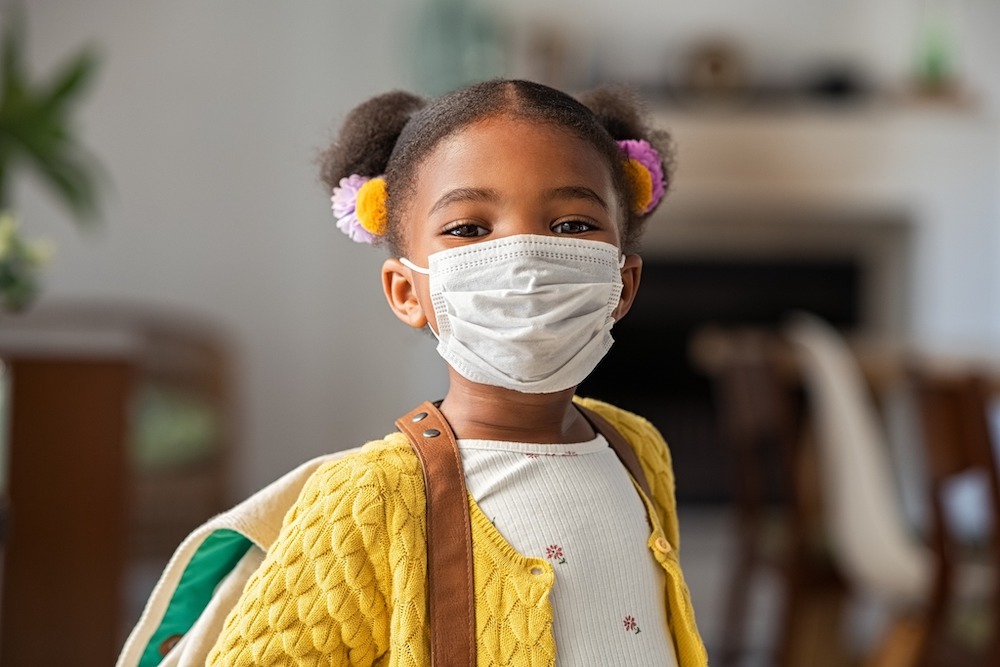Five things you need to know this week about global education

Governments are urged to ensure children catch up on lessons lost during the pandemic - and the teacher whose own children may never go back to school.
Urgent action needed to help children hit by school closures
Governments have been urged to ensure that millions of students who missed big chunks of education due to pandemic-related school closures get the opportunity to catch up.
The World Bank warns of a steep rise in the number of children unable to read and understand simple text by the age of 10. In a new report, it says the percentage of children in so-called “learning poverty” in developing countries may increase from 53% before the pandemic to 70%.
Evidence from Brazil, Pakistan, rural India, South Africa and Mexico shows substantial losses in mathematics and reading since the start of the Covid-19 crisis.
Mamta Murthi, Vice President for Human Development at the World Bank, said: “Countries must implement ambitious and aggressive plans at scale to recover these losses, with a sharp focus on the most disadvantaged populations – particularly girls, children with disabilities and those in poorer families.”
The World Bank’s report – The State of the Global Education Crisis: A Path to Recovery – says this generation of students risks losing $17 trillion in lifetime earnings at present value as a result of school closures.
It also showed that less than 3% of governments’ stimulus packages have been allocated to education. More than 200 million students live in low- and lower middle-income countries that are unprepared to deploy remote learning during emergency school closures.
The World Bank has rapidly ramped up its support to developing countries, with projects reaching at least 432 million students and 26 million teachers.
Teacher whose children may never return to school
A former teacher in Uganda has told how he fears his own children may have dropped out of education for good after one of the world’s longest school shutdowns.
Children in Uganda have been unable to attend classes since March 2020 and are not due to return until January at the earliest. Fred Ssegawa said that after 20 years of teaching social studies and science, he lost his income and was forced to turn to farming to provide for his family.
In an interview with the BBC, he told how three of his children aged 10 to 15 now work alongside him. His older children have also dropped out of education and do a variety of jobs, including making bricks and snacks to sell.
“I had wanted all my children to complete secondary school, at least. But I don’t think that will be possible,” said Ssegawa. “I know the value of education. These days, you cannot get decent work without a qualification. It makes me sad, seeing my children like this.”
Move to get the most 'invisible' children in school
The global foundation Education Above All (EAA) is to partner with four African governments to ensure every child goes to primary school.
The focus will be on enrolling the most “invisible” children – such as those working at home, youngsters with disabilities and refugees.
EAA will work with Djibouti, Rwanda, The Gambia and Zanzibar, the self-governing state of Tanzania. One in 10 children drop out of school in Zanzibar and only 34% achieve minimum literacy and numeracy.
Djibouti aims to enrol 35,000 out-of-school children into quality primary education. Education minister Moustapha Mohamed Mahamoud said: “Djibouti is a driver of equitable access to education throughout the Horn of Africa. We know the importance of unlocking the potential of children and youth for the growth of this nation.”
Thailand helps to fund refugee education
UNHCR has turned to Thailand to help raise funds to support refugee scholars who have fled conflict, natural disasters and discrimination.
The UN refugee agency’s Aiming Higher campaign works globally to raise finance and build partnerships with different sectors to help talented refugees into higher education by funding their scholarships and technical skills training. Only 5% of young refugees are enrolled in higher education.
For the next two years, Aiming Higher fundraising will be held in Thailand, with a target of funding 1,800 refugee scholars worldwide.
Venerable Medhivajirodom, a renowned Bhuddist monk and UNHCR Patron on Peace and Compassion, said: “I have always been supportive and endorsed the power of education. This campaign gives an opportunity for refugees to continue higher education and receive a second chance to be a valued global citizen.”
African countries vow to support youth health
Government ministers from countries in Eastern and Southern Africa have promised to create a brighter future for young people by supporting their education and health. They reaffirmed and expanded a commitment made in 2013 to increase sexuality education and youth-friendly sexual and reproductive health services.
Education, heath, gender and youth ministers met this week as part of the International Conference on AIDS and Sexually Transmitted Infections. They are expected to accelerate investments in the education and wellbeing of adolescents.
“Our young people are our hope for the development of our continent, Africa. As leaders of today, we need to prioritise the health and wellbeing of young people for the betterment of Africa,” said Dr Regina Mhaule, South Africa’s Deputy Minister of Basic Education.
The move follows similar commitments last month from leaders in West and Central Africa to invest in education, rights and healthcare for girls and young women as a crucial way to address HIV/AIDS in West and Central Africa.